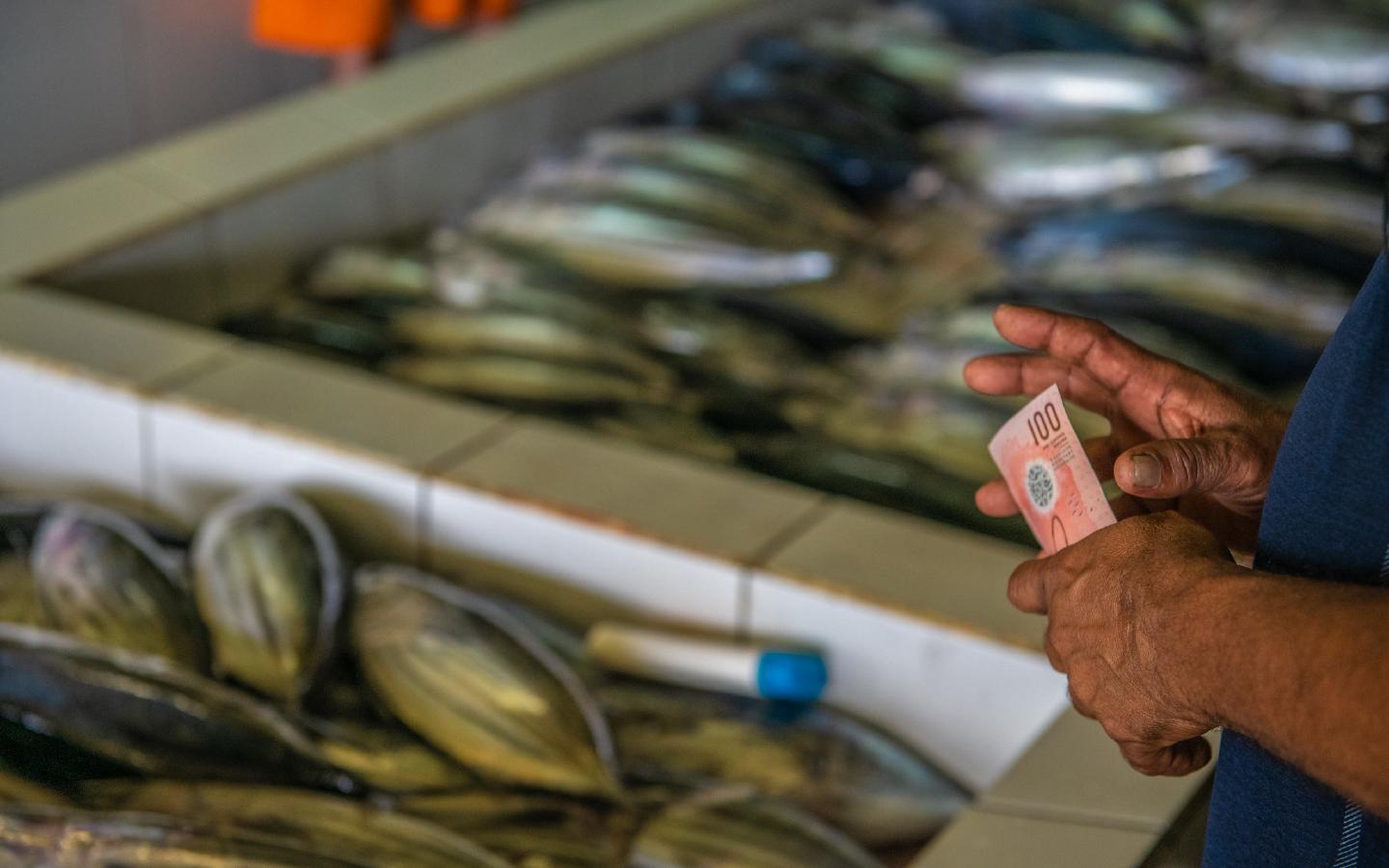Tourists are visiting Maldives once again after the COVID-19 pandemic, but small businesses have not fully recovered financially. ADB, Austria, Canada, and Japan are providing the Bank of Maldives with a financing package for the recovery of small businesses and investments in sustainable blue economy projects.
Visiting Maldives
Tourist arrivals in Maldives plummeted from a peak of 1.7 million in 2019 to about 554,200 in 2020 during the COVID-19 pandemic lockdowns but bounced back to 1.3 million in 2021. Tourism is expected to grow exponentially in the coming years.
With a 75% share of the country’s gross domestic product, tourism is the main economic driver of Maldives.
Maldives’ economy is recovering quickly, driven mainly by a proactive global marketing campaign launched by the Ministry of Tourism in 2021.
However, Maldives’ small and medium-sized enterprises, or SMEs, may not be ready for the expected tourist influx. About 5,000 SMEs, many of which operate in the tourism industry or are engaged in tourism-related businesses, have not financially recovered from the pandemic. Lack of access to finance has made it more difficult for these small businesses to get back on their feet.
On a much larger scale, tourism in Maldives is threatened by the impacts of climate change, as the country is highly vulnerable to extreme temperatures, sea-level rise, and disasters caused by natural hazards. To increase resilience against climate change, more climate finance is needed to support the blue economy—an economy closely linked to the health of the oceans.
Maldives has identified the blue economy as one of its development priorities and is keen to invest in sustainable blue economy projects.
Supporting Tourism with the Bank of Maldives
In March 2023, ADB and the Bank of Maldives Plc signed a $41 million financing package to reinvigorate tourism and support small and medium-sized enterprises and blue economy investments.
The financing package includes a loan of up to $13 million from ADB’s ordinary capital resources and parallel loans from the Japan International Cooperation Agency and the Austrian Development Bank (Oesterreichische Entwicklungsbank, OeEB) of up to $13 million and $5 million, respectively. It is ADB’s first nonsovereign cofinancing project in Maldives and ADB’s first collaboration with the OeEB.
The package also includes a concessional loan of up to $9 million from the Canadian Climate Fund for the Private Sector in Asia II and a grant of up to $1 million from ADB’s Asian Development Fund–Private Sector Window.
The Bank of Maldives (BML) is the largest bank in Maldives, with a presence in all the country’s 20 atolls. Established in 1982, the BML is a state-owned bank that offers a full range of banking services to over 300,000 customers (about 60% of the population), with a leading market share in retail, corporate, and small and medium-sized enterprise (SME) segments.
The BML will use the loan proceeds to support on-lending to tourism companies in preparation for the expected tourism boom. About 60% will be used to finance SMEs, and at least 5% will be allocated for lending to businesses owned by women. Smaller resorts and those majority-owned by Maldivians will be prioritized to support the development of local entrepreneurship and create tourism jobs for locals.
“Women-owned small and medium-sized businesses in Maldives have access to credit facilities, but many operate in the social sectors, such as in health and wellness, and in low entrepreneurial activities,” Suzanne Gaboury, director-general for private sector operations at ADB, said. “By providing financing to more women-owned tourism businesses, ADB’s financing package to the Bank of Maldives will hopefully encourage more women entrepreneurs in the tourism industry.”
Supporting the Blue Economy
In addition to the support to the tourism sector, the Bank of Maldives (BML) will use the funding from the Canadian Climate Fund for the Private Sector in Asia II and Private Sector Window to support on-lending for blue economy climate change projects, such as investments in clean technologies, energy efficiency, and renewable energy. BML’s on-lending will more broadly include tourism, fisheries, small and medium-sized enterprises, along with ocean conservation and preservation initiatives such as coral reef restoration, mangrove plantation, desalination, adaptation of renewable energy, energy efficiency, and coastal infrastructure preservation.
Blended Finance for the Blue Economy
One significant feature of ADB’s financing package to the BML is the use of blended finance in the on-lending for blue economy investments. Blended financing de-risks private sector projects in emerging economies in the Asia and Pacific region.
ADB structures blended finance solutions to strategically combine public or philanthropic funds (concessional financing) with a development bank’s own capital (usually market-priced). Funding from the Canadian Climate Fund for the Private Sector in Asia II and the Private Sector Window, with their submarket return rates, would help overcome bankability hurdles, absorbing a share of the project’s risk.
“The blended finance solution offered by ADB and the Bank of Maldives will attract more private sector capital in blue economy investments in the country,” Gaboury said.
"By providing financing to more women-owned tourism businesses, ADB’s financing package to the Bank of Maldives will hopefully encourage more women entrepreneurs in the tourism industry."
~ Suzanne Gaboury, ADB director-general for private sector operations
Share

